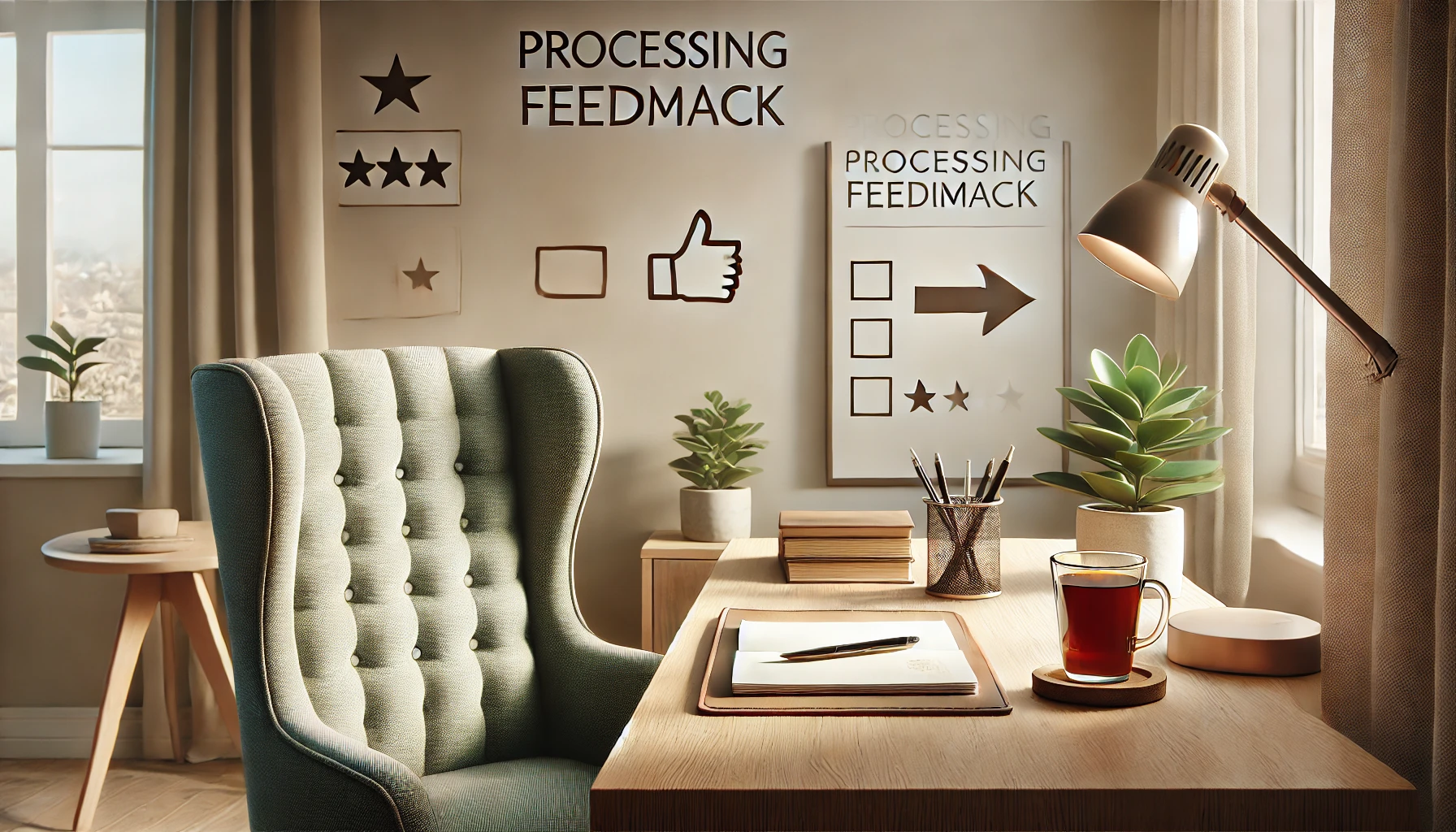Criticism is something we all face at different points in our lives. Whether it comes from a boss, a colleague, a friend, or even from ourselves, how we handle criticism can have a significant impact on our personal growth and well-being. While it’s natural to feel defensive or upset when we receive criticism, learning how to handle it constructively can turn these situations into opportunities for self-improvement. In this article, we’ll explore how to handle criticism effectively and not let it affect you negatively.
Understand That Criticism is Part of Life
One of the first steps in learning how to handle criticism is accepting that it is a natural part of life. No one is perfect, and everyone, at some point, will receive feedback or criticism. Instead of viewing criticism as a personal attack, try to see it as a tool for growth. Whether the criticism is constructive or not, it provides valuable insights into areas you can improve. Shifting your mindset to see criticism as an opportunity rather than a threat will help you handle it more gracefully.
Don’t Take It Personally
One of the most common reactions to criticism is to take it personally, but this is often not the best approach. The criticism may be directed at your actions, behavior, or work, but it does not define your worth as a person. It’s important to separate yourself from the feedback you’re receiving. Remind yourself that everyone makes mistakes, and that receiving feedback is a chance to grow, not a reflection of your character. By distancing yourself from the criticism, you can respond more rationally and use it to your advantage.
Stay Calm and Don’t React Immediately
It’s easy to become defensive or upset when receiving criticism, especially if it feels harsh or unfair. However, reacting immediately can often escalate the situation and lead to further conflict. Instead, take a deep breath, stay calm, and give yourself time to process the feedback. If needed, politely ask for clarification or time to think it over. Responding in a composed manner shows emotional intelligence and maturity, which will help you maintain control over the situation.
Listen Actively
When you receive criticism, make an effort to listen actively to the person giving the feedback. Avoid interrupting or jumping to conclusions. Instead, focus on understanding the message being conveyed. Active listening helps you gain clarity on the points being raised and can provide you with more constructive insights. If you don’t fully understand the feedback, ask for specific examples or suggestions for improvement. By demonstrating that you are receptive to feedback, you show that you are open to learning and growth.
Separate the Emotion from the Message
Criticism, especially if delivered poorly, can trigger an emotional response. However, it’s important to separate the emotion from the actual message. Focus on what is being said and ignore how it is being said. While it’s helpful to acknowledge how the criticism makes you feel, try not to let those emotions cloud your ability to objectively evaluate the feedback. By focusing on the substance of the criticism, you can use it to make meaningful changes without letting it affect your mood or self-esteem.
Reflect on the Criticism
After receiving criticism, take some time to reflect on the feedback. Is there any truth to it? Are there areas where you can improve? Reflecting on criticism allows you to objectively assess the situation and determine how to move forward. It’s important to view feedback as a tool for personal development, not as an indictment of your abilities. By taking time to reflect, you can determine whether the criticism is valid and identify ways to apply it constructively.
Use Criticism as a Learning Opportunity
Criticism, when handled well, can be an invaluable learning opportunity. Instead of getting defensive, take the time to analyze the feedback and use it to improve. If the criticism is constructive, think about how you can implement the suggestions into your work or behavior. This approach turns potentially negative situations into chances to grow and develop. By using criticism as a stepping stone for self-improvement, you build resilience and a positive mindset.
Don’t Dwell on It
Once you’ve processed the criticism and reflected on how to improve, don’t dwell on it. Holding onto negative feedback can only hinder your progress and well-being. Allow yourself to move on and focus on what you can do moving forward. Remind yourself that receiving criticism is a natural part of life, and it doesn’t define you. By letting go of any negative emotions tied to the criticism, you create space for growth and positivity.
Practice Self-Compassion
It’s important to be kind to yourself when handling criticism. We all make mistakes, and we all have areas for improvement. Instead of being overly critical of yourself when receiving feedback, practice self-compassion. Remind yourself that everyone has flaws and that the goal is to learn and improve, not to be perfect. Self-compassion helps you maintain a healthy mindset, which makes it easier to handle criticism constructively and move forward with confidence.
Seek Constructive Feedback
If you find yourself struggling with criticism, it might help to actively seek constructive feedback from others. Ask colleagues, mentors, or friends for their opinions on your work or behavior. By regularly seeking feedback, you can gain a clearer understanding of areas for improvement and prevent negative criticism from catching you off guard. When you actively seek feedback, you become more receptive to it and better equipped to use it for growth.
Handle Criticism with Confidence
Handling criticism with grace and confidence requires practice and self-awareness. By understanding that criticism is a natural part of life, listening actively, separating the emotion from the message, and using feedback as a learning opportunity, you can grow from it and improve. Remember, criticism does not define your worth. It’s simply a tool to help you become a better version of yourself. When you handle criticism with confidence, you turn it into a powerful tool for growth.
